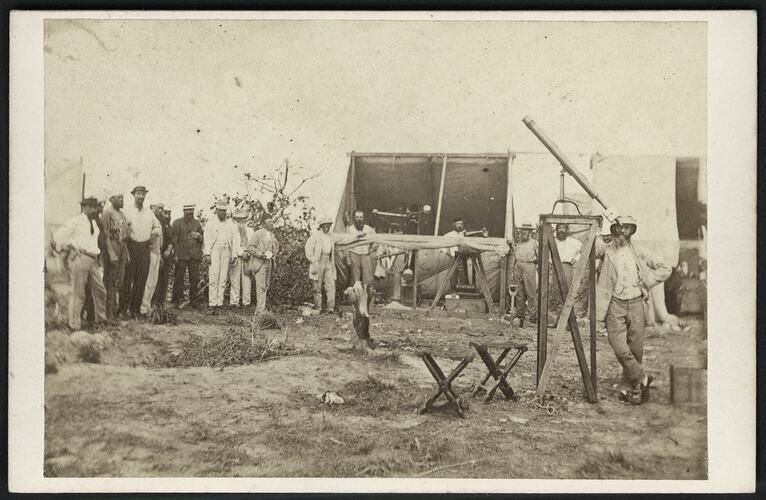The Royal Society was founded in 1854 and is Victoria's oldest learned society. It has a long history of significant contributions to science, technology and discovery. It has played an important role in the formation of government policy on science, surveying the natural resources of Victoria, establishing the Museum and national parks, convening the first Australian Antarctic Exploration Committee in 1885, organising the Burke and Wills expedition, and more recently establishing the Victorian Institute of Marine Sciences.
In 1854 the scientific life of Melbourne was focused largely on government departments, with meetings being held at the offices or the homes of individual scientists. The recently formed University of Melbourne was in the process of organization. The need for university supervision of the natural sciences was considered of the utmost importance, 'as questions of the most ordinary character are being daily referred to England'. The National Museum of Natural History had just been formed, while the Public Library was at a very similar stage to the University, the foundation stone was laid, but the building not completed. In this year two separate scientific bodies, with very similar aims and ideals, came into being within a month or so of one another. These were the Victorian Institute for the Advancement of Science and the Philosophical Society of Victoria. They amalgamated the following year to form the Philosophical Institute of Victoria, paving the way, in 1859, for the granting of the title 'Royal Society of Victoria'.
The first President of the Royal Society was Baron Ferdinand von Mueller, first Victorian Government Botanist and Director of the Botanic Gardens. Later Presidents have included Sir Redmond Barry, Sir Robert Blackwood, A. Dunbavin Butcher, Professor T.H. Laby, Professor Sir Frederick McCoy, Dr. P. Crosbie Morrison, Professor E.W. Skeats and Professor Sir W. Baldwin Spencer. In 2003 the president was Prof. Neil Archbold, BA MSc, PhD.
In 1991, the Sciences Club merged with the Royal Society.
Today membership is open to all, both those who have a scientific background and those who are interested in science. Membership benefits include the opportunity to participate in monthly lectures and symposia on various aspects of science and technology, hear about new and exciting developments in all disciplines, meet informally with leaders in the scientific, technological and academic fields, access one of Victoria's oldest scientific libraries, publish in the Society's Proceedings and enhance the knowledge and appreciation of science and technology and their impact on society.
References:
Royal Society of Victoria website http://www.royalsocietyvictoria.org.au/
More Information
-
Keywords
-
Localities
-
Authors
-
Article types
